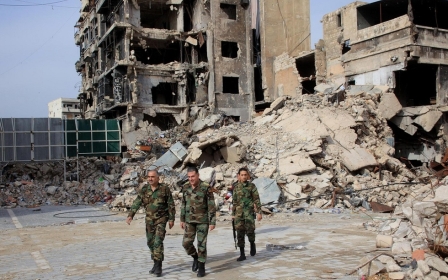Aleppo gets water supplies after three-month cut

Water returned on Friday to pumping stations in Aleppo city, a water services official said, after the longest cut left residents without supplies for three months.
"Water has finally arrived from al-Hafseh, the main water station east of the city to the pumping stations of Sleiman al-Halabi and Bab Neirab inside the city," the official said on condition of anonymity.
"Without electricity, the water will be pumped using generators with fuel provided by the Red Crescent, and water will gradually return to all parts of the city," he told AFP.
Residents had told AFP this week that they had gone about three months without steady water supply, their longest cut in the five-year war.
Once Syria's economic powerhouse, Aleppo city has been divided since 2012 between government control in the west and rebel groups in the east.
The Syrian Observatory for Human Rights said the water cut ended after the government repaired a pumping station that provided water to al-Bab, a bastion of the Islamic State (IS) group further east.
In turn, IS fighters allowed water to be pumped through areas under their control from the Euphrates River into Aleppo city.
Syria's state news agency SANA said water was once again being pumped from al-Hafseh "after a 48-day cut by the terrorists of Daesh," or IS.
The clashes tearing Aleppo apart for four years have damaged power generators and pumps that bring water to residential neighbourhoods, leading to intermittent shortages.
A Russian air strike in November on an IS-held treatment plant had left 1.4 million people in the city without any water at all.
Stay informed with MEE's newsletters
Sign up to get the latest alerts, insights and analysis, starting with Turkey Unpacked
Middle East Eye delivers independent and unrivalled coverage and analysis of the Middle East, North Africa and beyond. To learn more about republishing this content and the associated fees, please fill out this form. More about MEE can be found here.




